R&R at School: Reliable Water Brings Relief
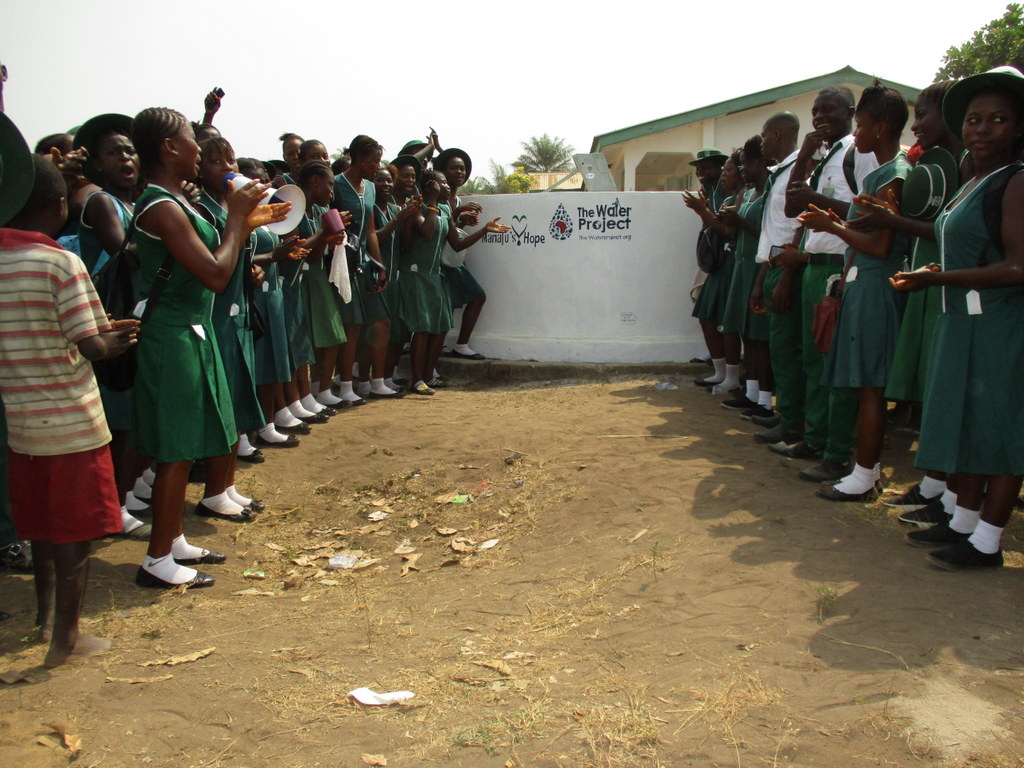
Two years ago, students at UBA Senior Secondary School in Sierra Leone did not have a reliable source of safe water. The well that was on the school grounds was unreliable and open, meaning it was unsafe for drinking. The more than 700 students at the school had to drop a bucket attached to a long rope into the well, wait until it filled, haul it up, and finally empty its contents into their containers. The water was often muddy and contaminated with bacteria.
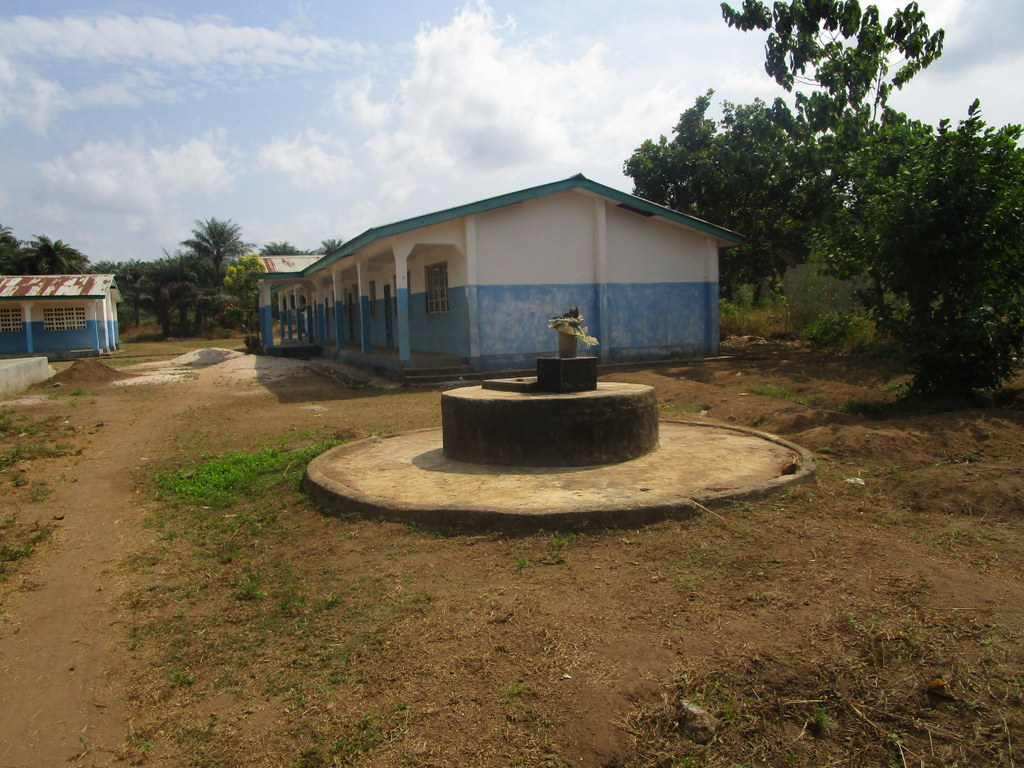
UBA Senior Secondary School’s well before the rehabilitation.
And that was if water was in the well. For some months of the year, the well ran completely dry. Students then had to walk a half-mile to the nearest community well to get water.
“The kids always grumble about the distance to the well, and they always ask about the quantity of water we use because they carry the burden of replenishing it when it runs out,” said Aminata Sillah, a teacher at the school, describing their original water situation with the old well.
The time spent fetching water and missing school due to waterborne illnesses harmed the students’ academics.
Today it is a different story. We rehabilitated the once unsafe well so that it provides clean water throughout the year.
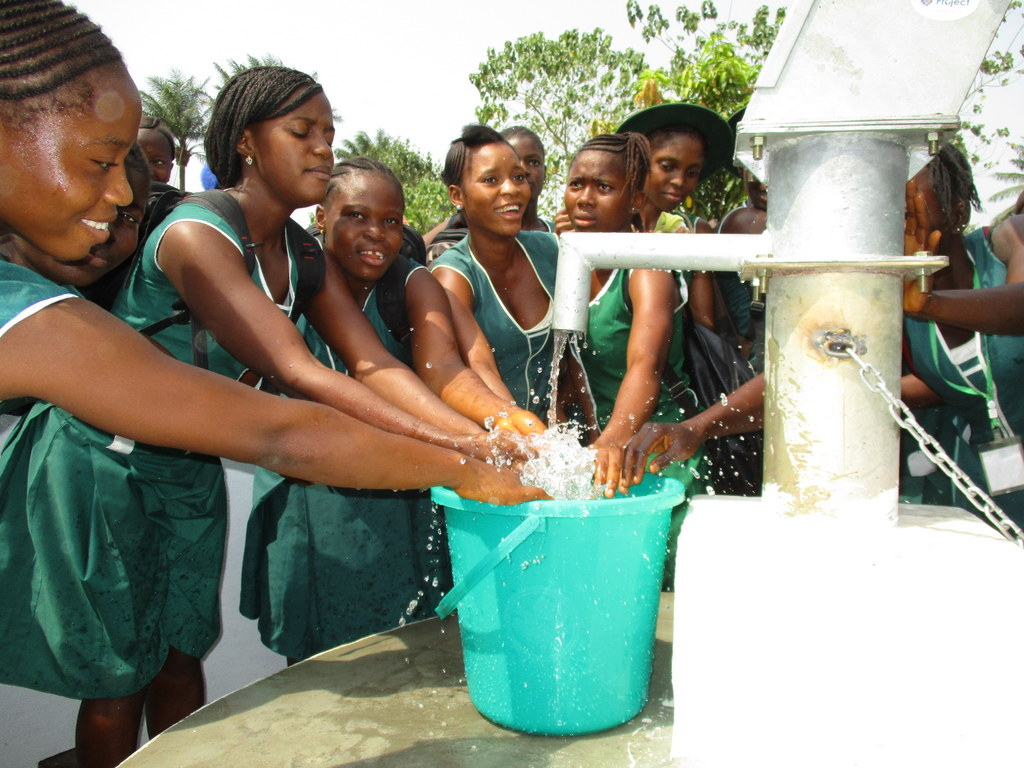
Well dedication in 2019.
“We are all happy for the water project that has been completed in our school. We no longer miss classes. There is always water in our classrooms and also the toilet,” said Kadiatu, a student at the school.
During a recent visit to monitor the well’s status, our teams spoke with students and staff at the school. Kadiatu said that she no longer faces any challenges while at school, thanks to the reliable water source installed more than a year ago. Teacher Osman C. Kamara said that the school and community are better off thanks to the well.
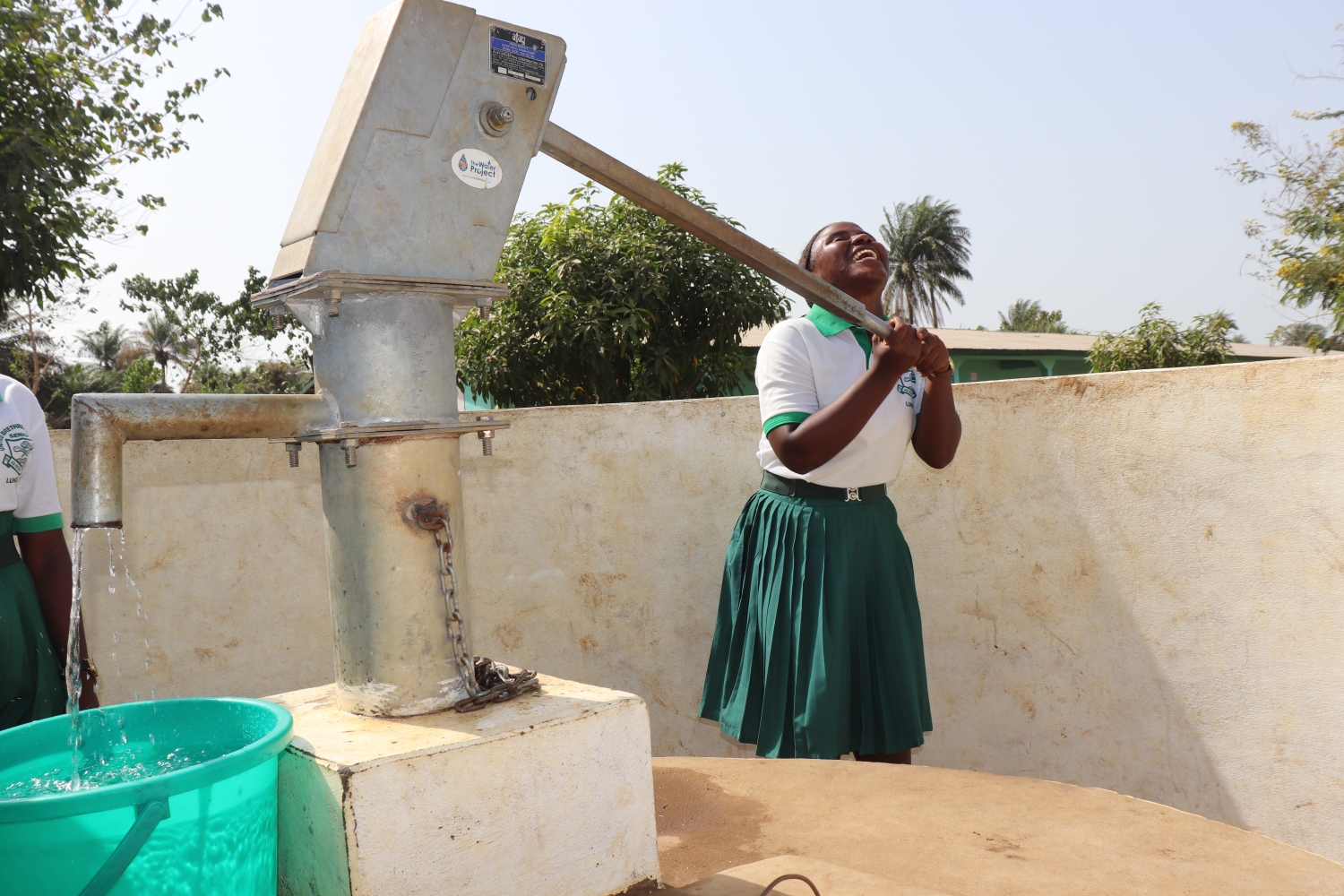
A student collects water a year after the project’s completion.
“We have gotten a huge relief with the completion of the water well. This has positively impacted our health due to the safe and uninterrupted water supply within the school. Pupils are no longer missing classes in the name of fetching water from distant places,” Osman said. The school’s overall state improved, too – especially in terms of hygiene and sanitation – with the availability of water on-demand at the school.
“The idea of getting safe drinking water in all the classes was achieved. The school toilets are supplied with an adequate water facility. The handwashing hygiene activities are constantly practiced in the school.”
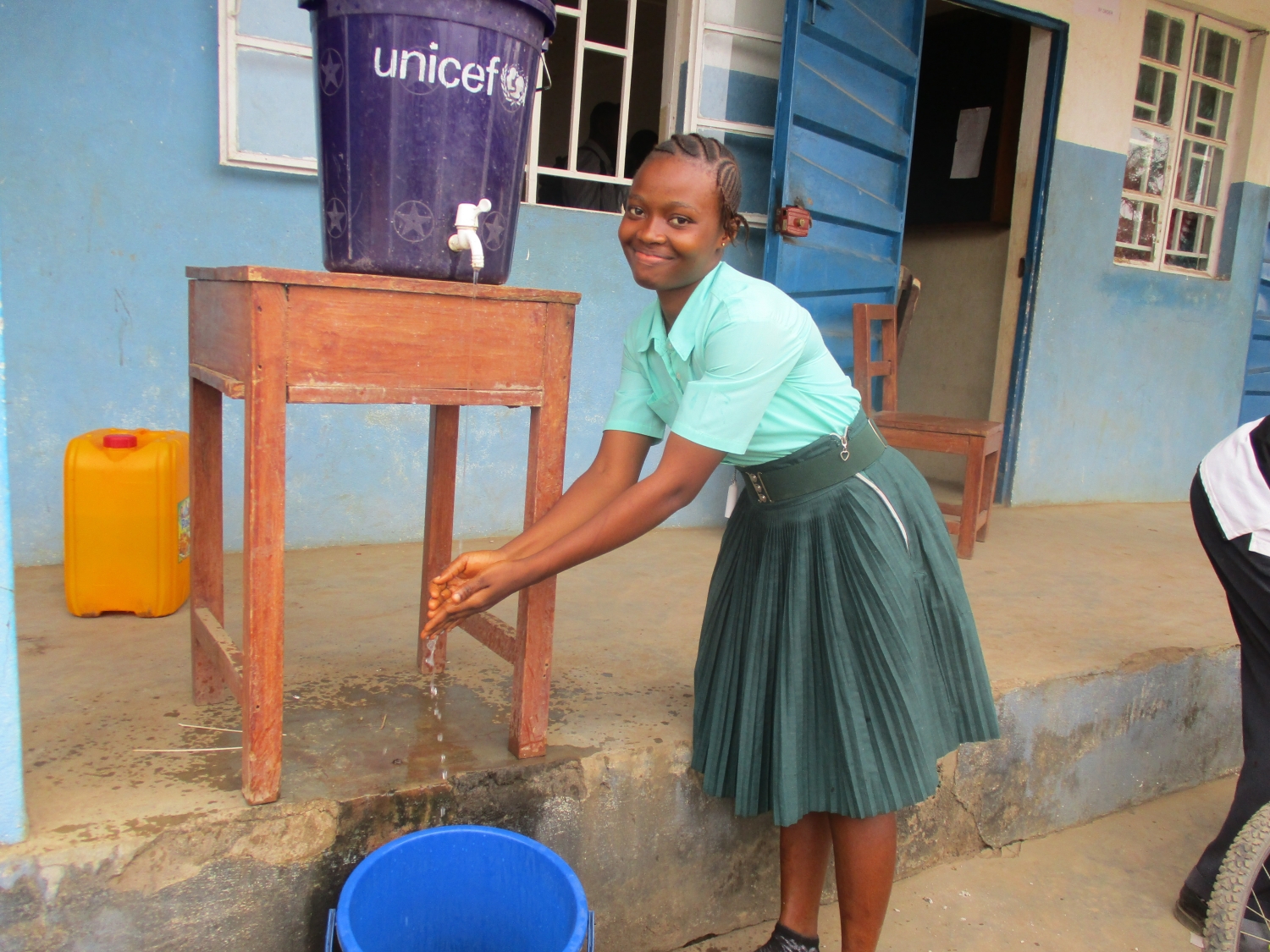
Kadiatu washes her hands using water collected from the well.
Community members are allowed to fetch water from the well whenever school is not in session, so it also helps people who live near the school avoid walking to the other community well.
“At this moment, the school and community are not faced with any water challenges,” Osman said.
Home More Like ThisTweet